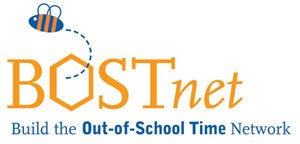Our programs are increasingly asked to do more with less. Again, after the Governor of MA announced the "9C cuts" (post budget cuts that are part of the state office's executive privilege), already lean programs are asked to "be creative." This is a strange request - but then, what have we come to take as normal? We put bumper stickers on our cars that exclaim, imagination a world where education has limitless funding and the Air Force has to have a bake sale to buy an F15! We tell our friends we wish for that to happen - but then we snicker people who try to make that happen saying they don't know how the world works. Perhaps deep down we don't want that to happen. We seem to ensure that for every 42.3 cents that go to the military that only 4.4 cents go to education, training, and social services not just one year, but each year. Do we not control over our priorities? Are these things the way that are because people actually want them that way? Perhaps we need to spend a moment and really reflect on the world that we really want not by our words alone, but by our actions and those of our extended networks. With our programs vying for those 4 cents (shared by schools, training, and social services, what are our proper investments and how does OST play a role in making those investments rather than responding time and again to cuts?
Investing in Out-of-School programs is usually cast as charity money - that old worn social services mantel that the inner cities are limitless slums and the people within them desperate and only able to provide their children with chaos and uncertainty for which OST programs are solutions to crisis after crisis. We need to rethink OST's role as neither an add-on to school nor only about intervention in cycles of abuse and poverty, but as investment in local economies. This investment is for today, and not for a distant future. This investment produces meaningful employment for young adults and integrated learning for children, the kind found less and less in Public Schools and increasingly the privilege of a private (voucher, charter, parochial, home) school.
"Children are our future" is a cliche we traditionally sell for investment in these programs. Today, we need less "future" outcomes and more delivered to our economy right now through meaningful jobs for our young adults, community foundations for working families, and quality learning environments where children get the privilege of get to have a childhood that is not tested or drilled.
Out of School Time programs can provide:
Meaningful employment for young adults
Learning experiences that move beyond homework and synthetic seamless days
Serving as micro economic redevelopment of a block or street
Making a low income area more attractive to families
Responding to community needs
Being able to influence school and community relationships
These are some potential ways programs can position themselves is they so choose to. The 9C cuts may be only the beginning of our economic hardships. The OST field must look now and really consider, what world do we want to belong to? We are already being asked by our policy makers to be more creative and true, many programs can survive or limp along using tried and true methods of funding and description of services. However, are we taking some of our own advice and "reaching for the stars"?
Perhaps it is time we answered that call with some actual creativity.
16 years ago

No comments:
Post a Comment